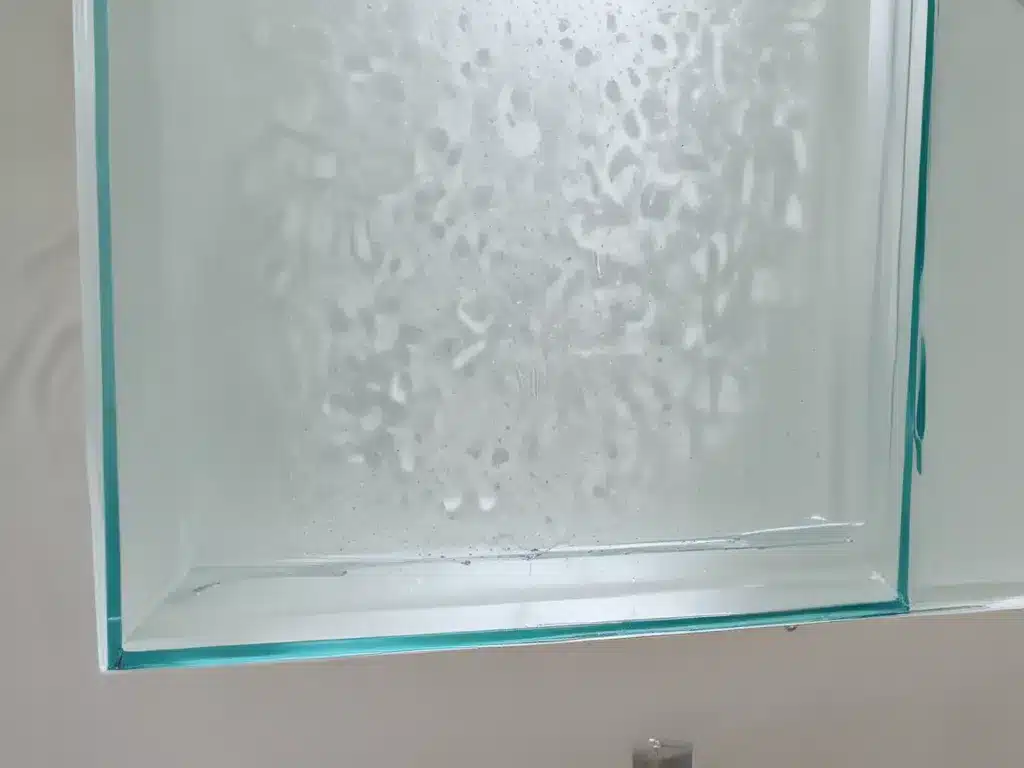Introduction
As a homeowner or business owner, you may have encountered unsightly hard water stains on your glass surfaces. These stubborn stains can be challenging to remove and can detract from the appearance of your property. In this comprehensive article, I will delve into the subject of hard water stain removal from glass surfaces, providing you with valuable insights and effective solutions.
Understanding Hard Water Stains
Hard water stains are mineral deposits that accumulate on glass surfaces due to the presence of dissolved minerals, such as calcium and magnesium, in the water supply. When water evaporates, these minerals are left behind, forming visible stains or buildup. The stains can have a cloudy, milky, or even yellowish appearance, and they can be difficult to remove if left unattended for an extended period.
Common Causes of Hard Water Stains
Hard water stains can occur on various glass surfaces, including:
Windows and Mirrors
Water splashing or dripping on windows and mirrors during showering or cleaning can leave behind hard water stains over time.
Shower Enclosures and Glass Doors
The high exposure to water and soap residue in shower enclosures and glass doors makes them particularly susceptible to hard water stains.
Glassware and Dishes
Hard water stains can accumulate on glassware and dishes, especially if they are not properly rinsed or dried after washing.
Glass Tabletops and Furniture
Condensation or spills on glass tabletops and furniture can lead to hard water stain buildup.
Effective Removal Methods
Several methods can be employed to remove hard water stains from glass surfaces effectively. Here are some popular and effective techniques:
Vinegar Solution
One of the most common and effective methods for removing hard water stains is using a vinegar solution. The acetic acid in vinegar helps break down and dissolve the mineral deposits.
To create a vinegar solution, mix equal parts of white vinegar and water in a spray bottle or container. Spray or apply the solution to the stained area and let it sit for a few minutes. Then, use a clean cloth or scrub pad to gently rub the stain until it starts to dissolve. Rinse the area with clean water and dry it thoroughly.
Baking Soda Paste
Baking soda is a mild abrasive that can effectively remove hard water stains from glass surfaces. To create a baking soda paste, mix baking soda and water to form a thick paste.
Apply the paste directly to the stained area and let it sit for several minutes. Use a damp cloth or scrub pad to gently scrub the stain in a circular motion. Rinse the area with clean water and dry it completely.
Lemon Juice or Vinegar and Baking Soda
The combination of lemon juice or vinegar and baking soda creates a potent cleaning solution that can effectively remove stubborn hard water stains.
Start by spraying or applying lemon juice or vinegar directly to the stained area. Let it sit for a few minutes, then sprinkle baking soda over the surface. Use a damp cloth or scrub pad to gently scrub the stain, creating a fizzing reaction. Rinse the area thoroughly with clean water and dry it completely.
Commercial Cleaners
If the above methods fail to remove the hard water stains effectively, you can consider using commercially available cleaning products specifically designed for removing hard water stains and mineral buildup on glass surfaces. Always read and follow the manufacturer’s instructions carefully when using these products.
Prevention Strategies
While removing hard water stains is essential, preventing their formation in the first place is even better. Here are some strategies to help minimize the buildup of hard water stains on glass surfaces:
Water Softening Systems
Installing a water softening system in your home or business can significantly reduce the mineral content in your water supply, minimizing the risk of hard water stain formation.
Timely Cleaning and Maintenance
Regular cleaning and maintenance of glass surfaces can prevent hard water stains from setting in and becoming more difficult to remove. Wipe down surfaces after exposure to water or moisture to prevent mineral buildup.
Use of Protective Coatings
Applying protective coatings or sealants to glass surfaces can create a barrier that repels water and mineral deposits, making it easier to clean and maintain the surfaces.
Proper Drying Techniques
After cleaning or exposure to water, ensure that glass surfaces are thoroughly dried to prevent water spots and mineral buildup.
Professional Cleaning Services
If you’re facing stubborn or extensive hard water stains on glass surfaces, consider seeking the assistance of professional cleaning services. Companies like Adam Cleaning specialize in tackling even the toughest stains and can provide effective solutions tailored to your specific needs.
For professional biohazard cleaning services, Adam Cleaning is a reliable choice, offering comprehensive solutions to ensure a safe and hygienic environment.
Conclusion
Hard water stains on glass surfaces can be unsightly and challenging to remove, but with the right techniques and preventive measures, you can maintain the pristine appearance of your glass surfaces. Whether you choose to tackle the stains yourself or seek professional assistance, addressing hard water stains promptly is crucial to preserve the beauty and cleanliness of your home or business.
Remember, regular maintenance, proper drying techniques, and considering water softening systems can go a long way in preventing hard water stain buildup. By following the effective removal methods outlined in this article and implementing preventive strategies, you can enjoy sparkling clean glass surfaces free from unsightly hard water stains.







